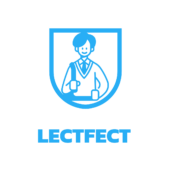
Incorporating self-regulation techniques into your study routine can lead to improved time management, increased motivation, and better overall academic performance. Whether it’s setting specific study goals, implementing effective study habits, or practicing self-assessment, integrating self-regulation into your learning strategies can make a significant difference in how you absorb and apply knowledge. Embracing self-regulation not only fosters a sense of ownership over your learning but also equips you with the tools to navigate educational challenges with confidence.
In Applying Self Regulation To Your Learning Strategies You Should
What Is Self-Regulation?
Self-regulation is the ability to take charge of one’s learning process by setting specific goals, monitoring progress, and adapting strategies to achieve desired outcomes. It involves being aware of one’s strengths and weaknesses, effectively managing time, and staying motivated throughout the learning journey. By practicing self-regulation, individuals can enhance their learning experiences by actively engaging with the material, seeking feedback, and persisting in the face of challenges.
The Importance of Self-Regulation in Learning

Self-regulation plays a crucial role in optimizing the learning experience by promoting autonomy and agency in the educational process. By taking control of their learning strategies, individuals can tailor their approaches to meet their unique needs and preferences. This not only boosts academic performance but also cultivates a sense of responsibility and accountability for one’s own learning outcomes. Embracing self-regulation empowers learners to overcome obstacles, adapt to varying demands, and strive for continuous improvement in their academic pursuits. By embracing achievable objectives, making real-time adjustments, and staying committed to educational goals, individuals can enhance their self-regulation skills. Strengthening self-regulation practices through digital tools and cognitive strategies is key to unlocking one’s full learning potential.
Strategies to Apply Self-Regulation in Learning
Setting Clear Goals
To apply self-regulation effectively in learning, individuals should start by setting clear, achievable goals. Establishing specific objectives provides a roadmap for success and helps maintain focus throughout the learning process. By defining what they aim to accomplish, learners can align their efforts and resources accordingly. Clear goals not only guide study sessions but also serve as motivation milestones, marking progress and encouraging continued dedication.
Monitoring Your Progress
Regularly monitoring progress is a crucial aspect of self-regulated learning. By tracking achievements and evaluating performance, individuals can identify areas of strength and opportunities for improvement. Monitoring progress allows learners to adjust their strategies in real-time, ensuring that they stay on course to reach their goals. It also provides valuable feedback on the effectiveness of study methods, enabling learners to make informed decisions about their learning approach.
Developing Self-Discipline
Self-discipline is key to applying self-regulation in learning. Developing the ability to adhere to study schedules, resist distractions, and maintain focus is essential for academic success. By cultivating self-discipline, individuals can overcome procrastination, manage their time efficiently, and stay committed to their educational goals. Building self-discipline involves creating a routine, establishing study habits, and practicing consistency in learning efforts.
Tools and Techniques to Enhance Self-Regulation
Technology and Apps for Better Self-Management
Utilizing technology and various apps can significantly aid individuals in enhancing their self-regulation skills for more effective learning strategies. Digital tools like time-tracking applications, task management software, and goal-setting apps offer valuable support in organizing study routines, setting reminders, and tracking progress. For example, apps such as Forest and Focus@Will help users boost concentration and minimize distractions during study sessions by implementing techniques like the Pomodoro method and providing background music scientifically designed for focus.
Cognitive and Behavioral Techniques

Incorporating cognitive and behavioral techniques can further strengthen self-regulation practices for improved learning outcomes. Cognitive strategies such as cognitive restructuring, visualization, and self-talk enable learners to manage thoughts, enhance problem-solving skills, and maintain a positive mindset. By challenging negative beliefs, picturing successful outcomes, and engaging in constructive self-dialogue, individuals can overcome obstacles and stay motivated in their educational pursuits. Behavioral techniques like habit formation, reinforcement, and self-reward systems assist in establishing consistent study habits, reinforcing positive behaviors, and incentivizing goal achievement.
Challenges in Self-Regulation
Mastering self-regulation in learning strategies presents challenges that require dedication and perseverance. It demands consistent effort in goal-setting, progress monitoring, and self-discipline. Overcoming obstacles like distractions, procrastination, and lack of motivation is crucial for successful self-regulation. Utilizing technology and behavioral techniques can aid in navigating these challenges effectively. By embracing achievable objectives, making real-time adjustments, and staying committed to educational goals, individuals can enhance their self-regulation skills. Strengthening self-regulation practices through digital tools and cognitive strategies is key to unlocking one’s full learning potential.

